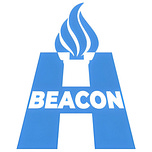We welcome first time candidate for City Council Emily Cole to the podcast.
We open with Tim’s summary of our goals for the interview series and Kevin kicks us into gear with a question about the nature of Emily’s candidacy and what drove her specifically to seek a council seat in this challenging election.
Emily centers her answer on the inherent responsibilities of the office and how those tie in to her Old Hilliard family life, her kids education, and the willingness to build community. She talks about her upbringing in the shadow of Washington DC and the feeling of wanting to fight for community instead of moneyed interest.
Jordan asks about the role “families” play in Hilliard and its governance. Emily responds with her path through the Hilliard real estate game and wanting to live somewhere locally centered, walkable, with a diverse range of people and opportunities for her family to mingle with and pursue.
She continues by describing the nature of her work and advocacy in the groups Health Policy for Ohio and Ohio Families Unite for Political Action and Change. Jordan asks how that experience building and reinforcing coalitions of people around needs could play a role in her future council work.
Ohio Families Unite for Political Action and Change
Emily talks about her experiences during the pandemic and how her work life was impacted - mirroring the plight of many families all across Ohio - and how that led to her work in Police study and reform advocacy around building safe communities.
Emily further describes her willingness to adopt a policy first view and work across traditional lines to create change by working to create relationships within the Law Enforcement world to see that resources, skills, and support are delivered to create the best environment for safety in the communities served.
“Hilliard Police Department sets the standard in the state…they are well above and beyond any kind of minimum recommendation.”
Tim asks Emily for some Hilliard policy highlights that have been well regarded and effective. Emily highlights the mandatory pursuit policies and trust building that the open sharing of the annual “Use-of-Force” data reporting has built in Hilliard’s police force from the reform and integrity community around the state.
Jordan asks if there are any potential “leading edge” changes that Emily foresees in Hilliard’s policing - whether that be school related or municipal. Emily’s response includes the mental health support made available within the various departments for first responders and community members affected by adverse or traumatizing situations. In Emily’s eyes she’s very interested in a variety of pilot programs available but would seek HPD recommendations before pursuing structural change or funding in any meaningful sense.
Jordan asks Emily her perspective on the incoming ALPR camera systems and the advancing nature of facial recognition software as a police tool and the dangers inherent in a technology that may be advancing racial bias. Emily responds that the inclusion of various private security systems and data aggregation in police work is concerning and that any technology promoting a racial bias would be unusable. The path forward is careful information sharing and study of usage.
Eye in the Sky, Looking at You, They can Read Your Plates
Rockwell (among other musicians and with a little help from a famous friend) told us in the 1980s “Somebody’s Watching Me.” Hilliard police hope would-be criminals can be made to feel that way with the placement of 11 security cameras to be strategically placed at freeway entrances and other high-traffic areas.
We shift the conversation to Emily’s desire to seek community input and we ask how she might pursue that in an ongoing way. We talk about the changes in communication through the Covid-19 era and how they are more and less effective for certain pursuits in local politics. Further, how the government commission structure could be changed and the potential for ward meetings and youth engagement to build a recurrent bridge to the future with better engagement and understanding of change.
Jordan asks Emily what the number 1 issue has been on the doorstep. She responds that before “Save Hilliard” became a talking point she heard most regularly about the expansion of trail and surface transit options. Since “Save Hilliard” she’s been encountering alarmed people believing she is leading the charge of the bulldozers. She talks about her willingness to walk through the community plan with people who she believes have been misinformed and the process of working through those disagreeable moments with integrity and fact based information.
Jordan talks through the sense of “unreality” generated by the idea that an apocalyptic army of bulldozers are around every corner but further how that very bizarre and out of keeping image triggers a lot of material anxiety that is useful to an election cycle but not very useful to ongoing governance or community involvement.
We turn to the “Favorite 20 pages” question and Emily borrows from Pete Marsh by highlighting her desire to see the Retired Rail Corridor create connections between all the various neighborhoods and the focus of infrastructure updates on future needs beyond maintenance of present levels. She’s also supportive of growing the small business and incubation aspects of local economy through city planning and initiative.
Jordan asks a question about Hilliard’s public health budget and the middle levels of service needed by Hilliard residents across aspects of aging, illness, medicine and nutrition. Emily talks about her past experience and the lens she uses to look for needs and opportunities in this area. Further, how the city might play a role in finding new economic partners to build that response and care for “the whole person.”
Kevin asks Emily if there are any early initiatives or goals she would bring to the first days in her seat if elected. She responds her first order of business is to learn and fully understand the scope of council and the work that *can* be done before making any specific big promises but centering resident engagement and drive for the things they are highlighting through that engagement are a must to start making those plans.
The show derails into planning a much needed vacation to Italy and Tim’s (mostly satirical) plans for a nuclear reactor here locally. Emily “encourages” him to present this exciting idea soon but reminds him that she tends to favor a thriving community and fact-based decision making!
Music Intro / Outro Composed by Eddie Maneuver
Summary Copy Written by Jordan Smith
We hope you enjoy this series and we are taking this very seriously.
We would like to extend a perpetual “thank you” to candidates and officials willing to make themselves available in this format.
Featured below is the guiding document we developed - drawing on decades of Kevin Corvo’s reporting experience - to provide residents the best chance to get to know the candidates you’ll be asked to vote for this November.
2023 Hilliard Beacon Election Candidate Interview Guidelines
Purpose of this document:
Create a framework for candidate interviews that will lend consistency to the overall project in an effort to keep the interviews fair and unbiased
Provide candidates with an idea of what to expect during the interview
Purpose of the interviews:
Provide a resource for Beacon Readers (and Hilliard voters in particular) to hear from candidates in a neutral environment so they can vote with confidence.
Give candidates the chance to speak at length about the issues they consider most important.
General format for the interview:
Timeframe for the interviews is open-ended. Most of our podcasts last about 40-50 minutes.
We will start with introductions and some chit-chat, then into questions.
Candidates will have the last word at the end of the interview to direct people to websites, fundraising, and ongoing contact.
General questions we may ask:
What’s your background/history in public service?
Why are you running for office?
What are the most important issues facing Hilliard and what can we expect of you if you win?
Outside your family and upbringing how did you develop your essential “common sense?”
Specific to longstanding and or ongoing issues in and around Hilliard as it pertains to our key focus areas - development, city governance, schools administration.
Of the 5 focus areas highlighted by the community plan which do you feel should be prioritized and how?
When it comes to Land Use how do you feel Hilliard should proceed with the Big Darby Accord?
On the subject of TIF - talk about your understanding of recent Hilliard history and how we got here via Issue 9 - Issue 25 - The Hilliard Development Corporation - and tax abatements in general? Examples: BMW Financial - Hickory Chase.
We will be putting considerable time into talking about the Community Plan- we’ll ask what you like about it, what you do not like about it, and what policies you will pursue in light of the plan.




















Share this post